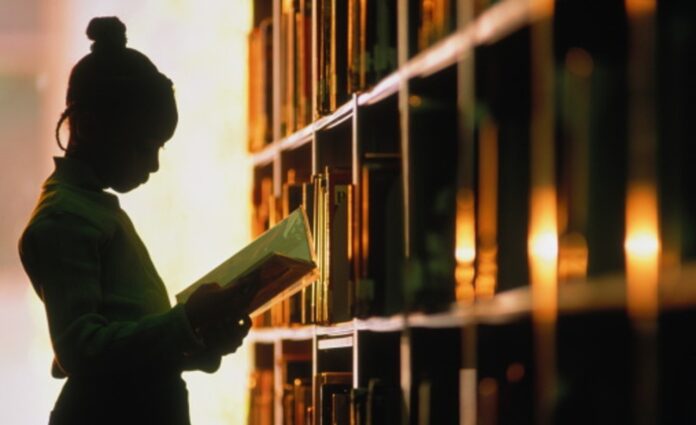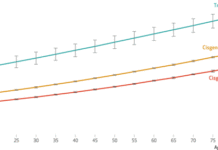
Story at a glance
- Concerns for the well-being of minority and LGBT youth are mounting this school year in light of recent legislation that limits how topics including race, gender identity and sexual orientation are talked about in schools.
- Black LGBT youth face higher rates of suicide than their white peers, and anti-bullying protections for LGBT students are limited in nearly half the nation.
- LGBT advocates say learning about queer and Black history in schools is an important part of encouraging these students to love and value themselves and their identities.
Concerns over the safety and well-being of minority and LGBT students — and LGBT students of color in particular — are rising as strict laws surrounding gender expression, health care and discussions about race and gender take effect in Florida, Texas and dozens of other states.
In the last eight months alone, state lawmakers in more than half the nation have introduced at least 137 restrictive curriculum bills that limit how topics including race, gender identity and sexual orientation can be talked about in schools. Free speech and LGBT advocates have said these measures are politically motivated and without empirical backing — and will cause untold harms to youth who identify within racial and sexual minority groups.
“Kids who identify as sexual minorities also face increased rates of suicidal ideation, trauma, stress, anxiety and depression,” David Johns, executive director for the National Black Justice Coalition (NBJC), told Changing America in an interview, citing research from The Trevor Project and GLSEN — two leading advocacy groups for LGBT youth.
“Prior to this most recent spate of anti-LGBTQ legislation, it was already the reality that kids who are assumed to be queer don’t have the same protections in the public schools – that they’re forced to go to by law — as their counterparts,” Johns said.
America is changing faster than ever! Add Changing America to your Facebook or Twitter feed to stay on top of the news.
Well over a third of Black LGBT students in GLSEN’s 2019 national school climate survey reported being harassed or assaulted at school because of both their race and their sexual orientation. A majority said they didn’t report the incidents to school officials “because they did not think that staff would do anything about it.”
In 23 states, anti-bullying laws do not address bullying on the basis of sexual orientation and gender identity, according to the Movement Advancement Project, which tracks laws and policies that affect LGBT Americans. South Dakota and Missouri state laws prevent schools and school districts from adding explicit LGBT protections to existing anti-bullying policies.
For Johns, this year’s rise in restrictive LGBT curriculum legislation, coupled with states’ attempts to limit if and how race issues are taught, is “anchored in embedded preserving whiteness and white supremacy.”
Legislation targeting race and LGBT issues and identities also affect students’ ability to understand themselves and their value, Melanie Willingham-Jaggers, executive director of GLSEN, told Changing America.
“What I know as a person who’s both queer and non-binary and Black is that learning about the people who I come from, the folks who are like me out in the world, helps me to understand myself,” Willingham-Jaggers said.
A report from The Trevor Project last year found that LGBT youth who learned about LGBT issues or figures in school were substantially less likely to report a past-year suicide attempt than those who did not.
Attempts to restrict history lessons from classrooms have played out in schools across the country this year. Earlier this month, school board members in Miami-Dade County in Florida rejected a proposal to recognize October as LGBT History Month and teach the district’s 12th graders about two landmark Supreme Court cases that established modern LGBT rights.
Educators throughout the state are severely restricted in their ability to engage in classroom instruction related to sexual orientation and gender identity under a new education law that took effect in July. They’re also prohibited from teaching critical race theory, a college-level framework addressing systemic racism in the U.S. that Gov. Ron DeSantis (R) has called “state-sanctioned racism.”
At least 35 states this year have passed or considered measures to limit race education, ABC News reported in March.
Parents have argued that schools teaching their children about LGBT topics or race infringe on their parental rights. Conservative groups like Moms For Liberty have developed guides that claim to teach parents how to detect and combat critical race theory and “reclaim” local school boards from “woke” community leaders.
In August, one Kansas mother and school board candidate told Fox News that she considers herself and two other conservative parents on the board to be one of the last lines of defense against the “indoctrination” of their children, whose education has suffered because of classroom “propaganda” pushed by liberals.
Willingham-Jaggers said politicians and extremists advocating for erasure of Black and LGBT history in schools were attempting to isolate and harm vulnerable communities.
“What we are seeing in these anti-LGBT attacks and these racist and white supremacist attacks on history and the honest telling of history in our schools is the attempt to shrink and distort the world so that young people do not see themselves in it,” they said.
More than 90 percent of LGBT youth in a Trevor Project report published last year said recent politics were negatively affecting their mental health. More than 40 percent of LGBT young people reported seriously considering suicide in the past year, including 21 percent of Black LGBT youth.
Roughly half of respondents in the Trevor Project report said they considered their school to be an “affirming” space — a key protective factor, according to the group. Eighteen percent of LGBT youth who attempted suicide in the past year said they did not attend a school that affirmed their sexual orientation or gender identity.
It’s the lack of accepting spaces and negative treatment of Black LGBT students that drives them to attempt or think about suicide at higher rates than their white peers, said Florida state Sen. Shevrin Jones (D).
Jones, a Democrat and the state Senate’s first openly gay member, said many of these students come from homes where they are unable to have conversations about their sexuality, pointing to a persistent stigma around LGBT folks in the Black community that leads students to seek approval in other places, like school.
“Imagine those Black LGBTQ youth already being closeted in their households and they use school as their safe place, where they can communicate with friends, or even find a safe space to talk to a teacher they have confided in,” said Jones.
“Now in Florida, you have a governor who has attacked Blacks, how we protest [HB1] a year before ‘Don’t Say Gay,’” Jones said, referring to a 2021 law that redefines a rioter as someone who “willfully participates in a violent public disturbance involving an assembly of three or more people.”
The bill grants police officers broader discretion in deciding who could be arrested and charged with a third-degree felony. DeSantis signed the law after the murder of George Floyd by Minneapolis police officers sparked national protests.
“You alter the way Black history can be taught, teachers can no longer have conversations with children about their sexual orientation or gender identity. That is placed on Black children, who now have nowhere to go,” Jones said.
The son of a pastor in South Florida, Jones said he wasn’t able to confide in his family when he suspected he might be gay. He couldn’t confide in his teachers, either, who knew his mother as an administrator in the Miami-Dade County public school system.
In college, hundreds of miles from his childhood home, Jones was able to explore his identity more freely, but did not publicly come out as gay until 2018, when he was 34.
“Young people are scared, especially Black LGBTQ youth,” he said. “Especially in Florida, there’s nowhere to go.”
But Jones says he is optimistic about the state’s future. Seven openly LGBT candidates of color running for state House or Senate seats in Florida won their primary races last month.
Should they win in November, LGBT representation in the state legislature will triple.
Jones said constituents have thanked him for speaking out against discriminatory state laws, but they have also expressed to him a fear for the safety of their children.
Beyond state legislatures, advocates have called on Congress to pass legislation including the Equality Act and the STOP Bullying Act that would protect Black and LGBT youth.
Johns said it’s important to see government investment in mental health support for LGBT students, but added that to achieve real change, people outside the LGBT community need to have meaningful relationships with people who are queer.
“Caring and concerned adults can all find ways to ensure young people can move through spaces that are safe and supportive,” he said. “Ensuring that young people can feel safe [and] sharing honestly what they’re experiencing is incredibly important. Creating public schools where Black children are able to thrive is the policy solution that matters most in this context.”








